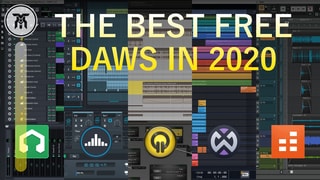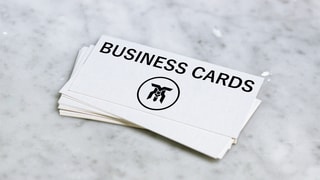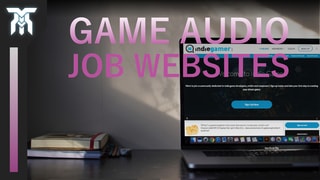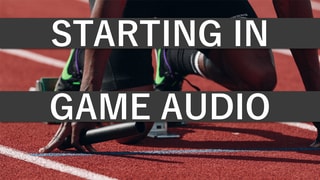Updated: Mar 27, 2020
Share!
49 Game Audio Tips (detailed)
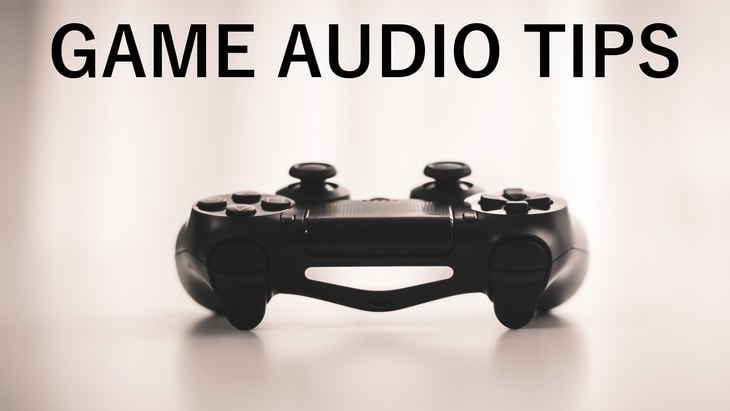
These game audio tips are detailed and packed full of information to help you advance in your field of audio.
First, there are some general tips that are motivating, insightful and even some inspired by amazing contributors to the game audio space. Stick around until the end, the featured comments are right after this section.
General Game Audio Tips
1. Think about the atmosphere.
What are the tools & knowledge you can use to evoke the emotions you want the listener to experience?
Don't forget the experience outside of the music you make. Think about how it will shape perception, emotion & way of thought.
2. Work with, not against!
When working on a project with other sound designers or composers, make sure you don't compete for audio space at key moments.
Talk with them and find out when things are happening to avoid clashing frequencies or other levels. Get involved with the team and find balance!
3. Don't give up!
Breaking into the video game industry with audio can be hard. All you need is Persistence, patience & work ethic. Some of the most rewarding paths in life are the most challenging.
In a marathon without a marked finish line, don't risk calling it quits. You could have been inches from it. Follow your dreams!
4. Get your worth!
You often only get paid once for audio in video games, unlike royalties in other niches. Negotiate a fair payment.
Try and settle on some official terms before dumping all of your hard work into a project as well! Sooner rather than later.
5. Get passive income!
Try to get royalties for your music/audio in any project, including games, as it might be used outside of it! Don't be afraid to ask, even for the rights to sell/upload the music.
You can use it for your portfolio and even to gain a following on different platforms. Negotiation is important and so is residual income!
6. Study & Separate.
Break down audio in game/film from the visuals. Listen to what's used, when it's used & how it might be layered. It can be hard to bring quality to the table without knowing where the bar is.
Take notes from the tried and true methods of the professionals. You can learn a lot when you can accept the fact that you may not be the best.
7. Think outside the box.
Instead of turning to your synths, why not include a real instrument in your project? Even if it's a SFX.
A real instrument can stand out much more when it's layered in with other synths or even by itself. This also goes for dropping a synth into an orchestral track, try it out with sound design too!
8. The final product.
Using samples/loops doesn't make you "fake". In the end, the audience usually only sees the results. Don't let impostor syndrome kick you in the butt.
Using samples and loops will make you much more efficient. Your time is valuable, don't waste it doing something that is already done.
9. Less is more!
The more you add to a piece of work, the less each part stands out and the more things can drown out. Find the sweet spot and know when enough is enough. Try muting individual elements to see if something isn't needed.
Keep this in mind for Reverb, Delay, and other effects too. The decay time of these effects can destroy the dynamics of your work. Look out for EQ as well. Too much low end or conflicting frequencies can do some damage.
10. Beware the rabbit hole!
Try not to overextend a mixing session. You may end up progressively making the mix worse or pumping it up so loud that there's no room for mastering. Take regular breaks and come back with a fresh perspective.
Even though this is especially important for mixing and mastering, don't forget about the creative process! The more time you spend adding things to your project the more you can lose sight of the goal you set out to achieve.
11. Earplugs.
If you go to concerts, festivals or other loud events, wear them. Your hearing is one of your biggest assets as an audio professional. Damage can be permanent, so take care of those skin flaps!
It may seem super obvious or super stupid. Don't try to be cool and go without them, even if audio is just a hobby. You never know where this industry can take you. You may not be able to get there without the ability to hear opportunity calling!
12. Home sweet home!
Establish a place to do most of your work. The more you understand how an environment sounds, the more you'll understand how things truly sound out of the studio. Not to mention the more comfortable you are, the better you will perform.
Gain inspiration from other places and bring it back to your studio. Sometimes nothing beats home base when it comes to creativity.
13. Reference.
Listen to your mix through different sources, preferably how your audience may play it. Think about laptop speakers, cheap headphones, or even in a car's sound system. Don't forget about the high end either such as surround sound if you can.
Listening through different devices will help you understand yours better. Knowing where your headphones/monitors are giving you a false playback of frequency is critical to changing things that sound good in the studio, but you know are wrong.
14. Revisit the original.
During the mixing process, it's easy to make a change that might be bad and interpret it as good if you listen to it for a long enough time. Make sure you're aligned with the original version of a mix to gain a valuable perspective on where it's heading.
This doesn't just apply to mixing. With time away from your projects, take a look back at version 1's. You may have been on to something! With newer versions you've made not as present in memory, you'll be less biased for them being better.
15. Listen.
Investing in some good headphones or monitors (speakers) is really important in understanding the true dynamics and frequencies of your work. Acoustic treatment is just as important.
The quality of playback through monitors is usually dependent on a room's acoustics. Don't blow your whole budget on speakers, get acoustic panels and maybe bass traps to go with them. Headphones are fine without them.
16. Any DAW. Any Middleware.
There are plenty of really good DAWs and middleware out there. There isn't a one-size-fits-all when it comes to this so try out a few and find what works for you!
There are plenty of great free DAWs out there and there aren't many paid DAWs without a demo. Picking a Digital Audio Workstation is up to your preferred workflow, visuals and maybe some capabilities. Generally, most DAWs can do the same things.
Sure, sometimes a studio will want you to use specific implementation software like FMOD or Wwize. But, having a bit of knowledge in both and a lot in one will be good.
17. Overrated.
Don't get caught up in the majority of technical details in music such as EQ, Compression, and mastering. Focus on the emotion & experience of what you make, first. Don't use this as an excuse to not work on the tech side, they're still important.
This applies to any creative field. A lot of time upfront on extras, tweaking and making it just right, it may all go to waste. You might lose your ideas, your inspiration, and even the desire to keep the project going, what's it all worth then?
18. "Save As"
When making a major change in a project, save it as a new version. Separating these will allow you to go back and see where things split apart and ultimately prevent a permanent change from erasing an idea.
Whether it's a music score or a sound effect, saving alternate versions of a project will help you when you come back to it later, especially if you've been at the same one for an extended period.
19. Organize.
Labels, color codes, and folders. Having everything clearly positioned in and out of your DAW will help you stay focused and productive. Spend less time finding and more time doing!
It's the little things that add up over time. Even saving 5 seconds on something you do every day can compound over a career. Try to streamline the entire process so you can spend more time creating and less time looking for what you need.
20. Presets.
Don't be afraid to use presets, it doesn't make you fake. Even if you like to make your own sounds, try starting from a preset that's close to what you're looking for and tweak it from there.
Doing this will save you a ton of time. Your plugins probably have loads of them, you're bound to find something close, if not right on. It's still good to try and make your own sounds too if you have the time/capability!
21. Niche Down!
There are so many areas of work in the audio industry. Even as a field recorder, you can get into nature ambiance, Foley, on-set for film, and many more. Get really good at a few things if not one. Keep the main thing, the main thing.
Focus will also give you a more professional look. Employers want the best of what they're looking for, anything else is a bonus. Don't sacrifice the quality of your work for capability in a breadth of other fields.
22. Eliminate!
Understand what you can get away with not including. What will muddy everything up? How many sounds at once will be too much? Does a sound need to be triggered every instance? Ask more, take it further.
Making the tough call on what to get rid of in a sample pack, voice over, or even a soundtrack will have a huge impact. Don't forget this when editing dialog or field recordings too.
23. One Champion.
In a given scene, make sure to define what will hold the dominant role, music or sound effects. Make it clear from the start whether the sound designer or the composer will be doing the heavy lifting.
Having this down from the start will help keep frequencies, volumes, and even panning positions aligned with both SFX and music. In any given scene, the story is most likely going to be told using either sound or score to accompany the visuals.
24. Story with Sound.
You can achieve a lot by telling a story through sound. If telling a story visually is too expensive, create some mystery with imagination and use sound. Leave space in the dialog for music and sounds too.
Let the player know something is coming that's not visible yet or give hints that something is hiding. Either way, find out how sound can be an alternative. If the visual assets are behind schedule, save them time by using audio instead.
25. Tension.
Abruptly change the tempo of dialog, rhythm, music progression and even the pace of the film or game. Study musical periods to give music a question and answer.
A quick change in anything (visuals included) will make a scene tenser. This is more of a wild card and should be used seldom as it can make the whole of the artwork an uncomfortable experience if applied too much.
26. Demo-Reel.
Don't save the best for last. Put everything in order from best to whatever you think is worst. Not everyone is patient enough to sit through your whole demo, respecting their time will help you that much more.
How often do you skip a video if it doesn't start out that good? Keep in mind that an employer often has many, many applicants to review for a given job. Restrict your demo to roughly 1 - 2 minutes and keep an extended cut handy if need be.
27. Re-Design.
If you don't have any previous work for your portfolio, remake the audio of a scene from a game or film. Handle it as if you are the real sound designer or composer for it. Point out what you did/didn't do.
Make it absolutely clear what you worked on in the demo and don't be sneaky about it. Try not to redesign something made by the company your applying to (unless you did an outstanding job), it may come off as disrespectful / "I can do it better".
28. No Bad Clients.
The responsibility of getting things straight from the get-go is equal if not all up to you. Define the scope, terms, etc. right from the start. Educate the client on the way you work.
Most of the headaches you can come up against can be prevented by establishing terms or "rules" in a contract. Make it official, take it seriously, even if you know and trust them. Without setting clear expectations, you can quickly go out of scope.
29. Reinvest
When you make some money from your audio work, spend it on things that can move you forward in your career or hobby. Get what will have the greatest impact on your performance first, then focus on luxuries.
Instead of spending the money you make on entertainment, reinvest it in yourself. Hire someone to work for you, upgrade if it will make you more efficient, etc. As a freelancer or even working in-house, your career will benefit from the value you can provide.
Although playing games to study them can help a game audio person, don’t make that excuse all the time! You don’t need to buy every game that comes out.
30. Guidelines.
Following a general path or form doesn't necessarily make your work inauthentic. Leaving room for creativity, but generally sticking to what's expected of a genre can help meet a client/customer's desires.
This doesn't mean follow what everyone else is doing or that what you create has to have "the thing". Be unique and be yourself, but take into account what makes a genre, a genre. People don't go to an EDM festival to hear rock n' roll, do they?
31. Optimize!
Using the same plugins all the time? Save them in a template & save presets if you use the same settings. Making your workflow efficient will encourage productivity and creativity. Any amount of time wasted all adds up over the course of a career.
It may not seem like it's worth it to make something even slightly more efficient. To put it into perspective, wasting just one minute, 5 days a week, adds up to roughly 43 hours in 10 years. 5 minutes of setup? Make that 216.7 hours. Optimize ASAP.
32. The Listener.
Think about what the audience wants and what would suit the project. Start your creativity there if you're lacking inspiration.
Sometimes, you might get stuck trying to figure out what direction to take the audio in a project. It may seem really basic and obvious but you don't always have to "stick to your style". Accept the style of others and soak up some creativity!
33. Perfectionism.
Attempting to perfect every aspect of something will deprive other parts. Focus on the content before you start picking at the details, all while taking care not to spread yourself too thin.
There is a balance of when to shift focus towards the details. A great melody isn't at it's best in a 20-second song, nor is a 20-minute song with a bad melody any good.
34. Promote!
As a creative contributing to a game or film, go above and beyond and promote the project! Even if you're not obligated to, it will benefit your career and your relationship with the people involved.
It's not just a "hey look at the thing I did" either. Get involved with marketing your side of the content such as an OST if you're the composer or artwork that can grab attention. The project doesn't just get exposure but your talent as well!
35. Pass It On!
If you ever have a full plate of work or get a job offer that is under-budget, don't just ignore it! Pass it on to a friend who could do it and recommend them to the client.
Helping a friend get work and being truthful to the client will build trust, respect, and reputation. Not to mention, it's just a nice thing to do! Just remember, your reputation is on the line so make sure they can do the job well.
36. Events.
Don't be scared of events related to your field of work. People go to these events because they're interested in the topic, don't be shy to show your contribution to it.
It's not only about going to events surrounding your niche either. Find events that your clients/employers are likely to attend. Stepping slightly out of your comfort zone can lead to more opportunities than just going to events about what you do in your field of work.
37. Decisions.
Don't spend all of your time wondering what to throw into a sound or a song. Just do something. Your efficiency will be crippled by not making fast decisions, even if it doesn't work out you can change it later.
This is true for choosing what asset to use in a project too. After everything is filled and finished, go back and determine if there was a better option if you have the time.
38. Freebies.
There is so much free software out there from full DAWs to synths and effects. If you are stuck needing a certain sound or need inspiration, check out some of the free stuff before buying something.
39. Mastery.
You don't need the most expensive tools to make good work, you just need to know how to use what you have. Sure, they might make it easier but it comes down to creativity and talent.
40. Recycle.
You may have ideas that never made the cut, that you thought weren't good enough, that were left behind. Take these outcasts and find ways to include them in future productions and don't let them go to waste!
Whether it's concepts for music or sounds that never made it into a library, game, or film. They may not have the quality for that specific production but with some processing and layering, you might find use or even inspiration.
41. Every Day.
If you want to grow as an artist quickly or keep the creativity flowing, make something every day. It can be a sketch, finishing something, or experimentation. Whatever it is, always be creating!
Practice makes perfect and constantly being immersed in your creative field can help you improve and discover new ideas. Now, you don't need to spend all day every day. Burnout can have the opposite effect.
42. Duration.
If you're worried about a song being too short, don't just draw it out for the sake of making it longer. Instead of using fillers, add with intent. Consider using a timeline specific to the genre you're producing too.
It doesn't just have to do with composition either. Designing sound effects can sometimes leave you with assets that may seem too thin or plain. Sometimes leaving some room in the spectrum can help it fit together with other sounds.
Featured Game Audio Tips
These game audio tips were inspired by some insightful people in the game audio space. Check them out on Twitter too, they have more stuff you might be interested in!
1. Validation.
Push your content out, regardless of approval from others. If you believe in what you do, do it. Just don't avoid it because you may fail or might be wrong. That's how we learn.
There's a lot to learn from Adam Croft, whether it's from his blog or books; check him out!
2. Appreciate!
If you like someone's work or what they do, show them some love! Whether you're a co-worker or part of the audience, show your appreciation.
It doesn't always have to be in the public's eye either. Sometimes a personal, direct compliment can have more of an impact than one made for everyone to see.
- Inspired by @_decibella
3. Context.
Just because something sounds good on its own, doesn't mean it sounds good in the mix. It is very rare for a sound to be in heavy isolation. Think about the music, the atmosphere, and other sounds that are present at any given time.
For the most part, there's going to be at least something else heard, even if it's just subtle wind or other ambiance. There are many opportunities for conflicting frequencies and possibly overwhelming a specific section of frequencies.
- Inspired by @mattesque
4. Prioritize.
Make sure you're able to carry out what's expected of you in your main responsibilities such as work you rely on to pay the bills. Don't sacrifice quality in these critical commitments for work on the side or maybe's or hopes on getting a gig.
Of course, if a better opportunity arises, you should take it. But, make sure you finish what you've started and follow through with what you've committed to already. A "maybe" is often an optimistic "no".
- Inspired by @AShellinthePit
5. Ask For It.
If you find yourself stuck or feel restricted due to a team member's process or their created assets, don't keep it to yourself! If presented politely, asking for a change that can benefit you can save time and energy for everyone.
Leaving a problem until it's unavoidable can force progress to be trashed to get around an issue. The team should be happy that it was brought up before more was invested in something that was slowing others down.
- Inspired by @mrgrimm01
6. Placeholders.
Planning out how sounds will be implemented by creating a "template" with placeholder SFX can organize and streamline your creative process. Replacing the temp sounds can give you the ability to rapidly prototype assets.
Making triggers, events, and systems are relatively routine processes in most cases. Don't let this interrupt your creativity every time you need to implement a single sound.
- Inspired by @edsounddesign
7. Client's Vision.
Until you know in detail what your client/boss wants, don't go slamming down all your effort into an asset. Dive deep into everything about it, people from other disciplines may not know how to articulate what they desire in your fields jargon.
Don't rely on vague instructions like "I want a happy sound" either. What they are truly looking for may be completely different than what they think they're saying if it's that ambiguous.
- Inspired by @amanfr01
With all of those laid out, you should be in a lot better shape.
In the comments below, leave your favorite tip that was/wasn’t mentioned here so others can learn something new. Thanks for reading, share this post to help some newcomers in this space!
Featured Post
Share!
Join the newsletter for free stuff and some knowledge too!
Everything you need. No Spam. A heads up before others do.



